The CLIMA Fund has made over 1,200 grants to grassroots movement groups in 122 countries and territories since 2019.
Read about some of our partners from the previous years:
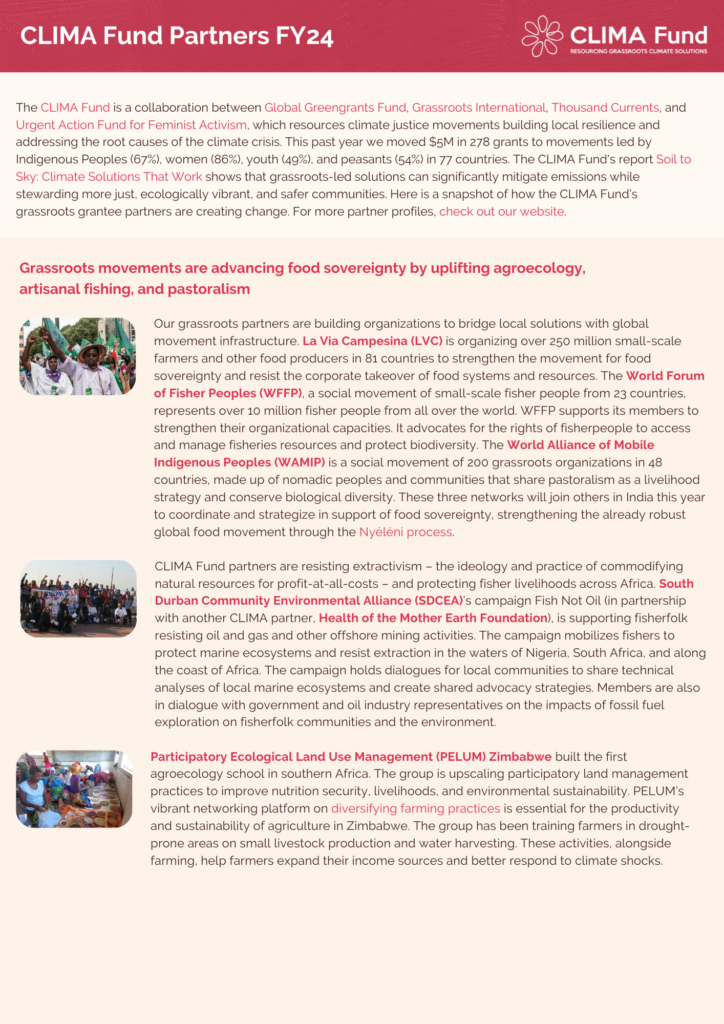
From July 2023 to June 2024 (Fiscal Year 2024), CLIMA Fund partners advanced food sovereignty by uplifting agroecology, artisanal fishing, and pastoralism; secured climate policy and built broad political coalitions to win key protections for the Earth; produced equitable, extreme weather-resilient energy; and advanced Indigenous sovereignty and gender justice.
We moved $5M in 278 grants to grassroots movement groups in 77 countries, with an average grant size of $17,675. 67% of grants were made to groups led by Indigenous Peoples, 86% by women, 49% by youth, and 54% by peasants.
During Fiscal Year 2023, CLIMA Fund partners ushered in an energy transition, built community-led food systems, and won major victories from Hawaii to Kenya and beyond.
We moved $8M in 468 grants to grassroots movement groups in 92 countries, with an average grant size of $16,842. 61% of grants were made to groups led by Indigenous Peoples, 87% by women, 64% by youth, and 59% by peasants.
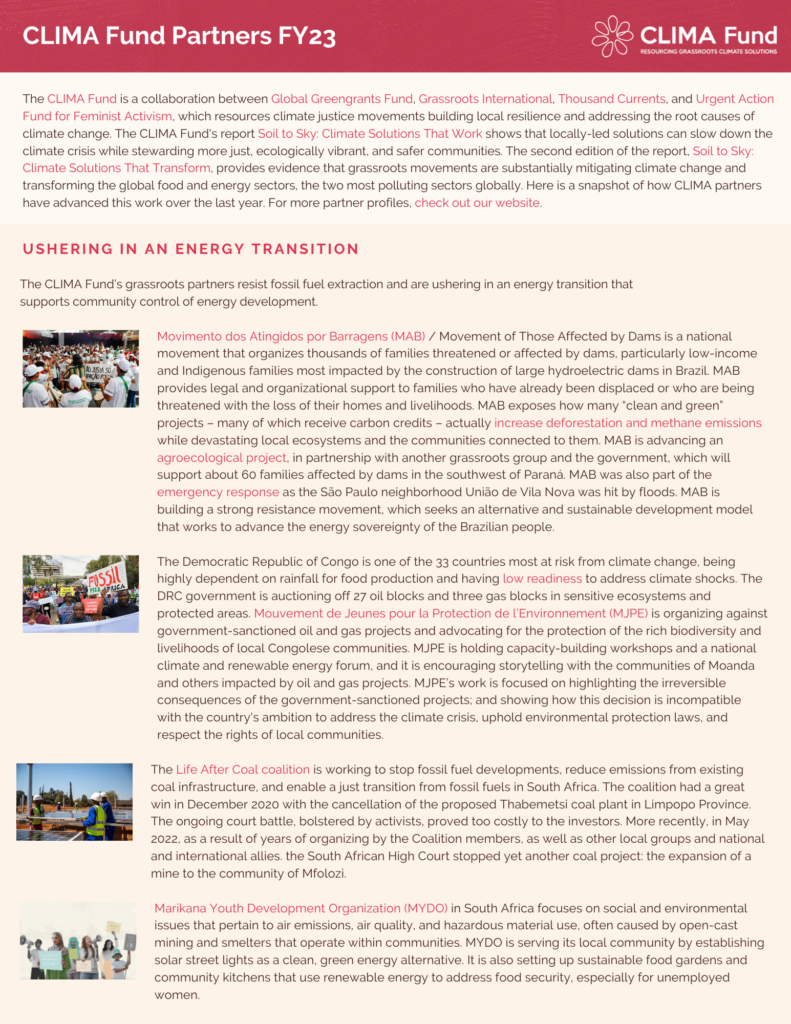
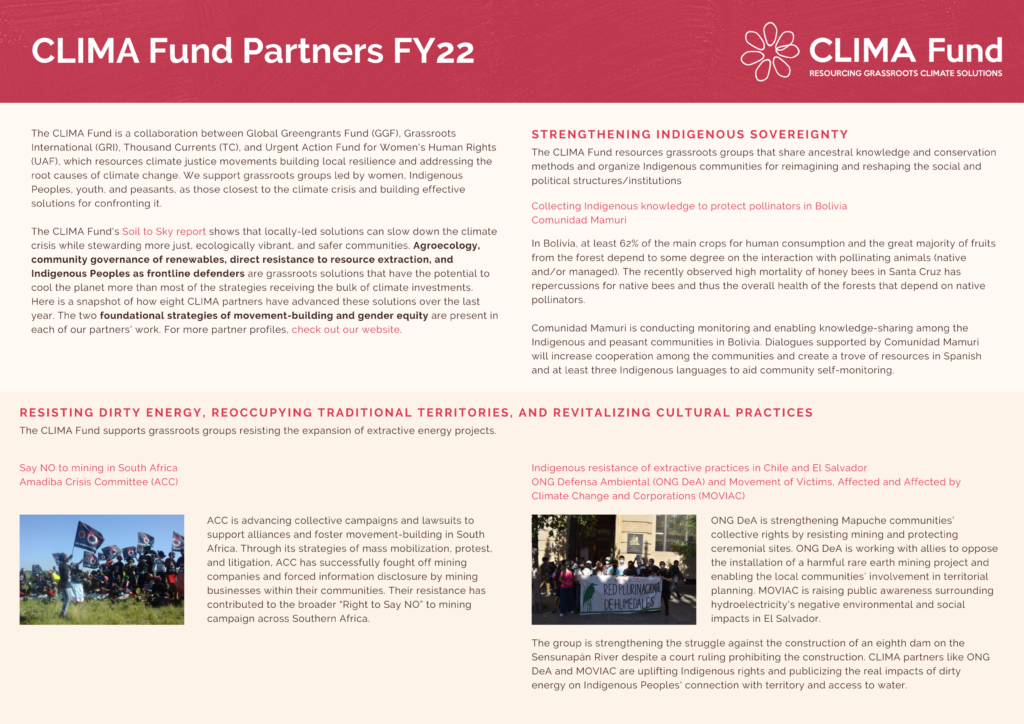
During Fiscal Year 2022, CLIMA Fund partners resisted dirty energy, reoccupied traditional territories, and revitalized cultural practices. They supported community-controlled and biodiversity-based food systems, and promoted ecological sustainability and community governance of renewables.
We moved $3.5M in 271 grants to grassroots movement groups in 78 countries, with an average grant size of $12,354. 57% of grants were made to groups led by Indigenous Peoples, 84% by women, 63% by youth, and 49% by peasants.
Read more stories of grassroots brilliance:
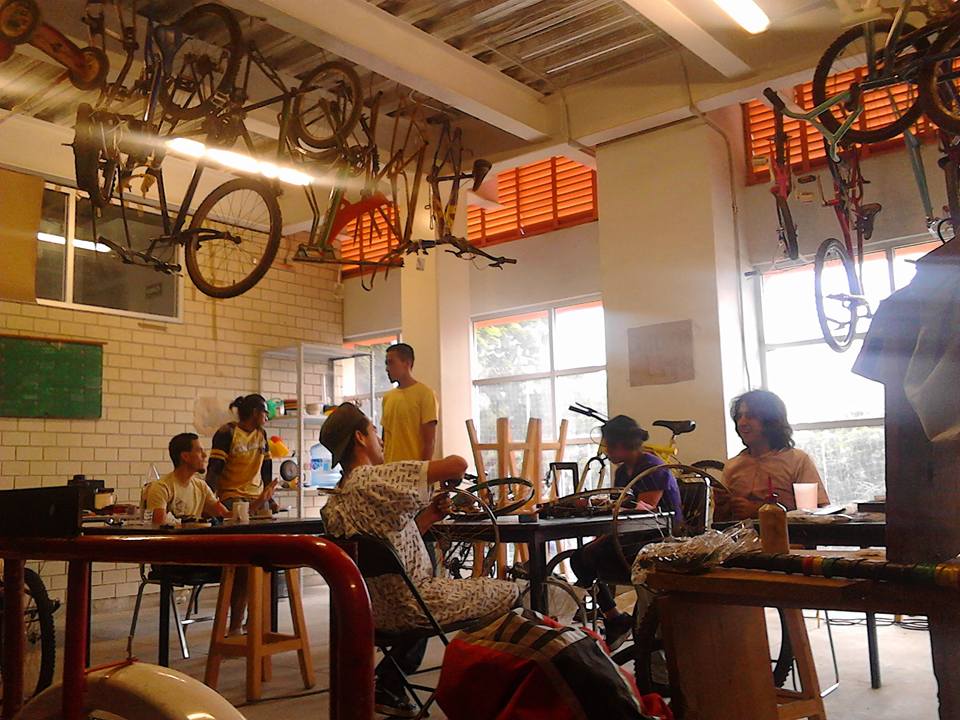
Our partner Taller Comunitario Enchúlame la Bici, a group of bicycle activists, runs a community workshop in the Pensil neighborhood of Mexico City. Community members visit the communal space to learn bike mechanics, repair bikes, or build new ones from scratch using recycled parts. Enchúlame la Bici also influences urban mobility policy through conferences and public advocacy.
Enchúlame la Bici is so much more than a bike shop: they provide a safe space for youth to gather and find employment, support women’s leadership, and advance green transportation policy.
A partner of Global Greengrants Fund, Enchúlame la Bici is ramping up activities as more people rely on bikes during this pandemic, and is spreading public health messages city-wide. During this global crisis, it’s community spaces like these, already embedded in neighborhoods, that are meeting the material and informational needs of communities around the world.
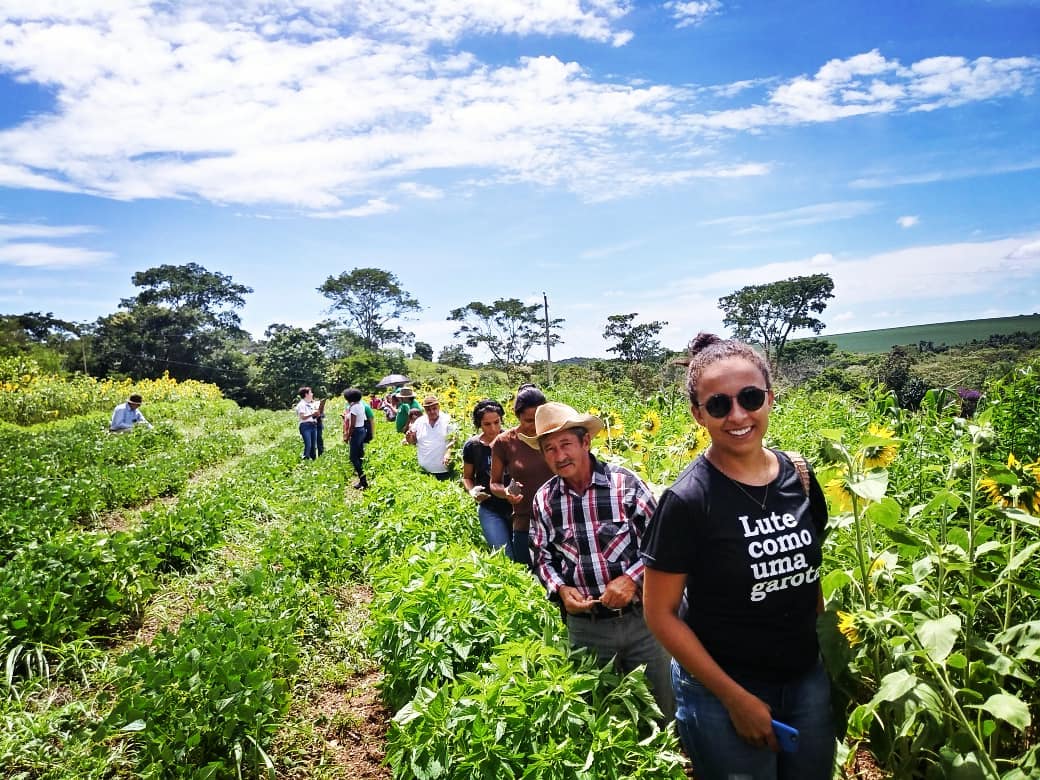
Food sovereignty and food security in Brazil are under threat from the expansion of agribusiness and its promotion of GMOs and agrochemicals. The lack of policies to regulate agribusiness under the authoritarian and right-wing government of Jair Bolsonaro, coupled with threats and challenges to peasant organisations due to budget cuts, are compromising community health across the country.
There is no option left but to resist. Movements for agroecology are mounting grassroots resistance against big industrial agriculture across the globe. Our partner Movimento Camponês Popular (MCP)/Popular Peasant Movement in Brazil is resisting by strengthening agroecological seed production and distribution, and implementing agroecological practices to create the foundation for food sovereignty in the region.
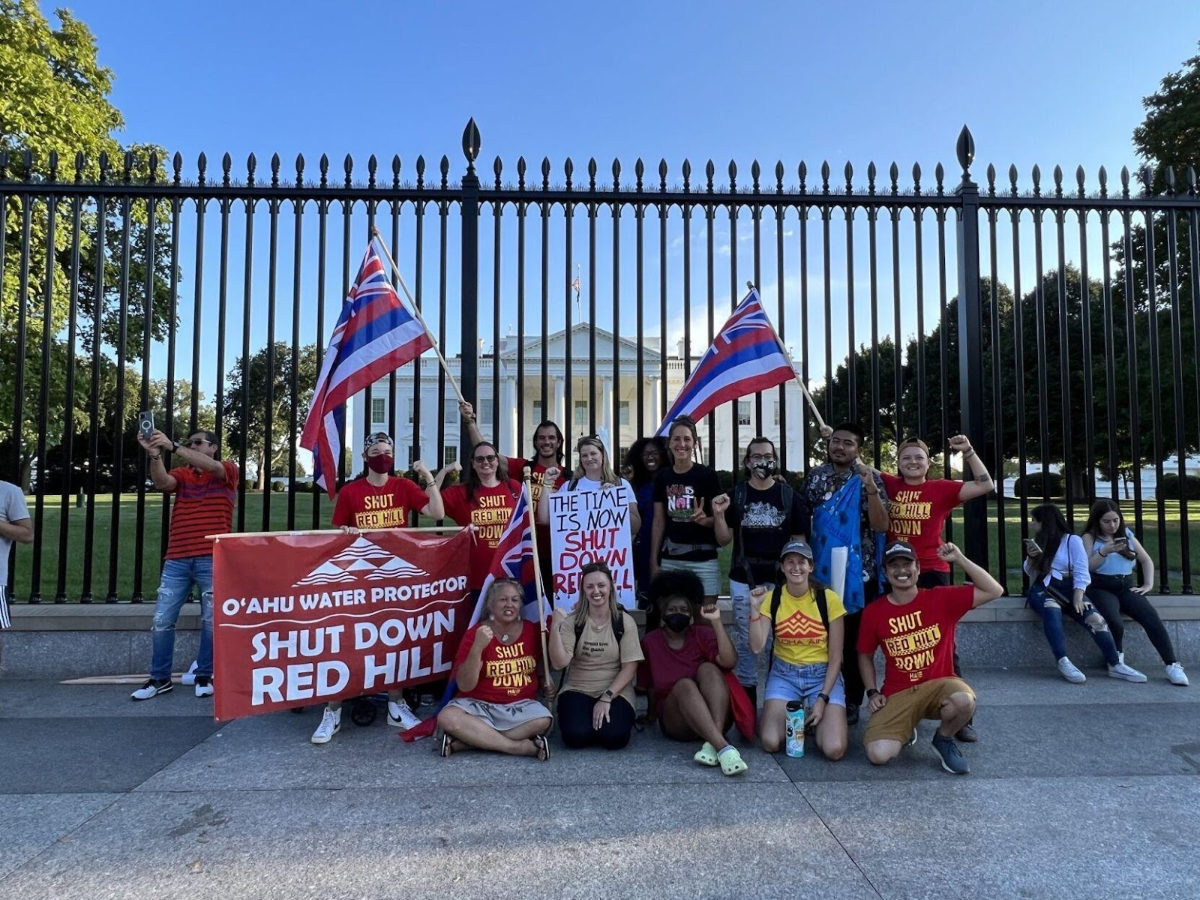
In 2021, a jet fuel leak at the Red Hill fuel storage facility, run by the United States military, caused large amounts of petroleum to spill into the main water supply in O’ahu, Hawaii. This leak contaminated water in the area, poisoning the drinking water and critically impacting the health and lives of countless Hawaiian residents. CLIMA Fund member Urgent Action Fund’s grassroots partner organization, O’ahu Water Protectors, is one of several grassroots organizations in Hawaii responding to the Red Hill oil spill.
After the spill at Red Hill, the O’ahu Water Protectors mobilized to take bold action and raise awareness around the disproportionate harm this devastating environmental crisis has had on their community. Their most recent action has gained attention and momentum at the federal level in the United States.
Using a grant from UAF, the O’ahu Water Protectors sent four delegates to Washington, DC, to advocate for clean water in Hawaii and to have Red Hill shut down before it further contaminates the water supply in the area.
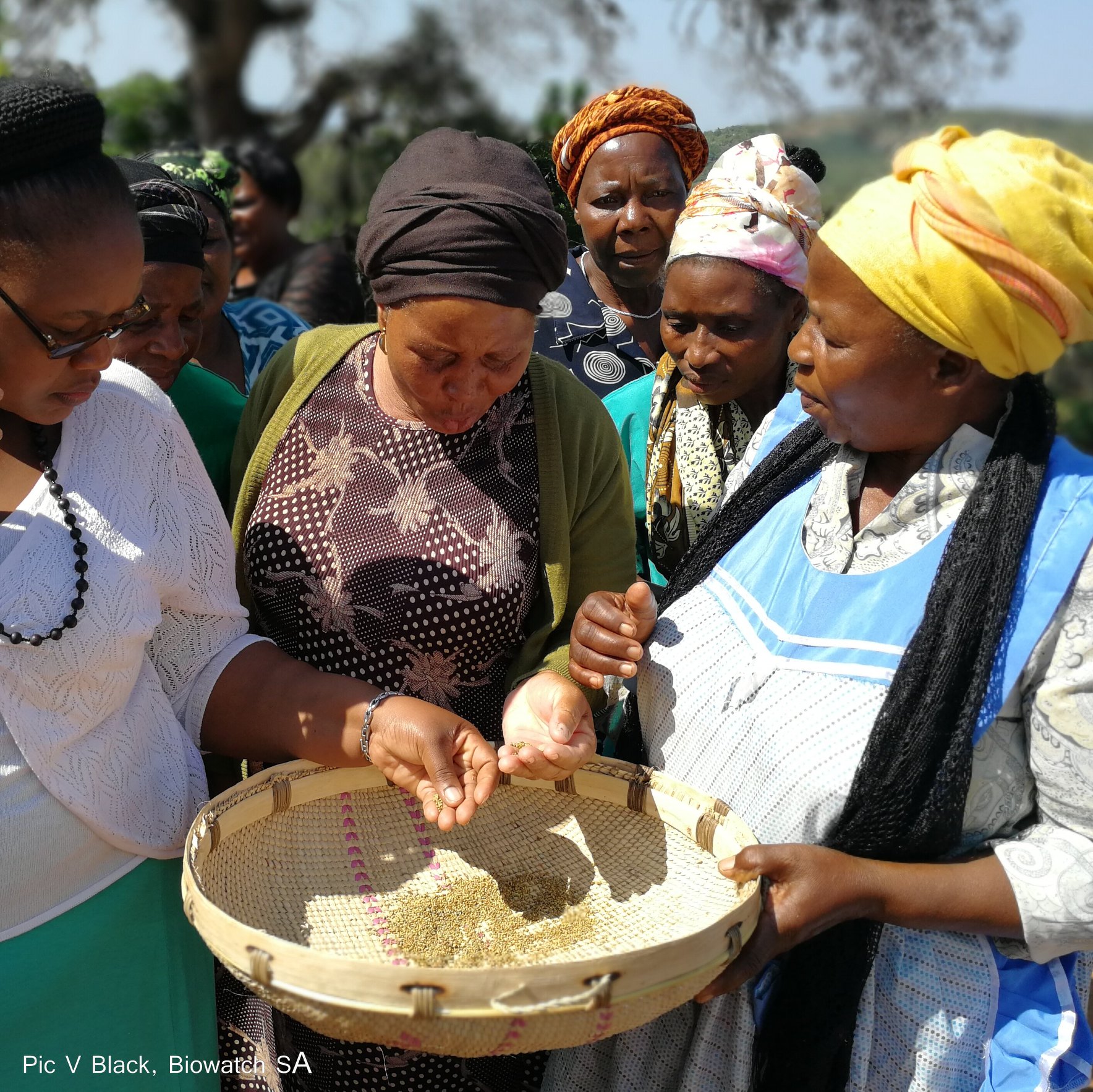
In 2007, more than 500 fisherfolk, Indigenous Peoples, landless peoples, rural workers, urban movements, migrants, pastoralists, and forest communities from 80 countries convened in Mali at the Forum for Food Sovereignty. The Forum was convened to develop a shared understanding of agroecology as a critical element of food sovereignty. The Forum sought to broaden the food sovereignty movement’s capacity for common action and solidarity. The attendees issued the Nyéléni Declaration on Food Sovereignty, which defines the concept of food sovereignty and grounds it in the diversity of peoples, cultures, and struggles they represent.
The seeds of the concept of food sovereignty were planted by La Vía Campesina during the 1996 World Food Summit to move the conversation beyond ‘food security’. While the latter focuses on guaranteeing sufficient food to all (through trade and market mechanisms), food sovereignty recognizes “food as a fundamental right of all peoples” and identifies it as a guide for achieving economic, social, and political justice. In doing so, it places the producers and consumers of food at the center of the food system, instead of exploitative multinational agriculture companies that are not accountable to local communities.
The declaration defines food sovereignty as the right of peoples to healthy and culturally appropriate food produced through ecologically sustainable methods. It also includes their right to define their own food and agriculture systems.